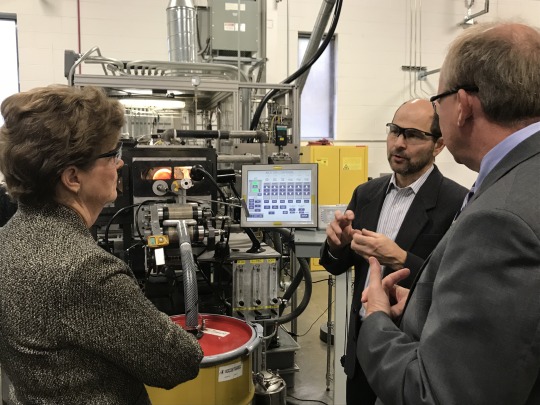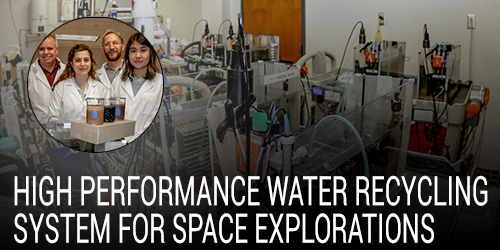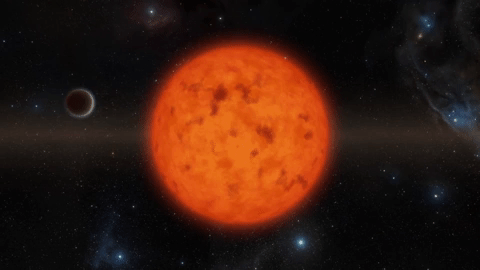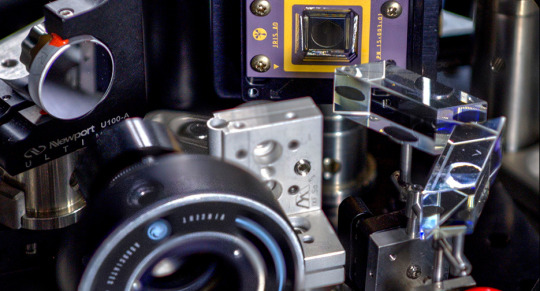Earlier this month,
Congress introduced a
resolution officially recognizing Nov. 24, 2018 as Small Business Saturday “to
increase awareness of the value of locally owned small businesses and the
impact of locally owned small businesses on the economy of the United States.”
This annual American
Express campaign began on the Saturday after Thanksgiving in 2010 to support
“local places that make our communities strong.”

For 60
years, we have supported and partnered with
small businesses across the country to pioneer the future of space exploration, scientific discovery and
aeronautics research.
Our Small Business Innovative
Research (SBIR) and Small Business Technology Transfer (STTR) program funds the research, development and
demonstration of innovative technologies that help address space exploration
challenges and have significant potential for commercialization. In 2018, our
program awarded 555 contracts to small businesses for a total of $180.1
million.

NASA works with small
business Nanocomp Technologies Inc. of Merrimack, New Hampshire, to advance
manufacturing of carbon nanotube composite materials.
Our investments in small businesses help equip future
missions to the Moon, Mars and beyond by advancing our science and technology
capabilities. They also benefit the U.S. economy. The SBIR/STTR program’s 2017 Economic
Impact Report indicated
a $2.74 return for every dollar spent on awards—money well spent!
Small businesses
also contribute to scientific advances for the International Space Station as
well as here on Earth. Pancopia, Inc. in Hampton, Virginia, developed
an innovative, high-performance water recycling system to remove high levels of organic carbon and
nitrogen in wastewater. Recycling water in space saves money on resupply and
enables more Earth-independence and self-reliance. With the help of an SBIR
award, Pancopia is also working on a similar system for public wastewater that
has the potential to cut treatment expenses to less than half the current
costs.

Small businesses
also contribute to scientific advances for the International Space Station as
well as here on Earth. Pancopia, Inc. in Hampton, Virginia, developed
an innovative, high-performance water recycling system to remove high levels of organic carbon and
nitrogen in wastewater. Recycling water in space saves money on resupply and
enables more Earth-independence and self-reliance. With the help of an SBIR
award, Pancopia is also working on a similar system for public wastewater that
has the potential to cut treatment expenses to less than half the current
costs.

When NASA went to the private sector to develop deformable
mirror technology—a key component of starlight-blocking instruments—a
small business in Berkeley, California, applied for research and development funding through
SBIR to design extra-precision, segmented mirrors. This innovative approach for
a small deformable mirror made up of many tiny hexagonal segments enables
advanced control when paired with other optics.

Data collected by a
telescope using the Iris AO deformable mirror can be used to determine if the
target investigated in space is an exoplanet based on its orbit, and if the
exoplanet has atmosphere using color spectrum imaging analysis. The Iris AO technology
is currently being refined and prepared for inclusion in a future exoplanet
mission.
Does your small
business have a big idea? Your next opportunity to join our SBIR/STTR program
starts on Jan. 7, 2019, when our next solicitation opens. We’ll be seeking
new innovative ideas from small businesses and research institutions for
research, development and demonstration of innovative technologies. Go to
https://www.nasa.sbir.gov/ to learn more.
Make sure
to follow us on Tumblr for your regular dose of space: http://nasa.tumblr.com







Комментариев нет:
Отправить комментарий